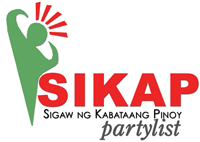ISSUE 1: Youth participation in nation building is weak despite existing supportive legal frameworks.
Barriers to Youth Empowerment and Well-being
BACKGROUND ON ISSUE 1:
Limited political participation
- Only 14 out of 236 national legislators are below the age of 35, which is just six percent of the total.
- In party-list system of representation, no youth formation has yet been able to hurdle the two percent threshold to earn a seat in Congress.
- A Social Weather Station (SWS) survey conducted in 1996 found that 10 percent of Filipino youth were involved in a youth organization. 6 per cent were involved in arts, music or educational organizations, 3 per cent in a charitable organization and one per cent in a political party, labour union or professional association. Some 60 per cent of those surveyed said they were disinterested in politics.
- The same survey revealed that only 14 percent of Filipinos aged 15-30 have ever participated in government youth programs.
- A survey commissioned by the Episcopal Commission on Youth of the Catholic Church in 2002 reveals that only 11.8 percent of young people polled believed that being a responsible voter is the best expression of love of country. Only four in 10 say they are socially involved in one way or the other. 41.7 percent they’re “afraid to get involved,” followed by 30.5 percent feel their participation “will not make a difference.” Close to 20 percent say social involvement is a “waste of time.”
- Lack of awareness on laws and policies concerning youth participation at the international level
- National Youth Commission (NYC) still ill-equipped to coordinate and monitor the implementation of government, NGO and youth sector programmes at the regional and local levels.
- The SK is criticized for not doing enough to mobilize young people politically; it puts most of its efforts into sports and sport competitions.
- Corruption in the SK as a function of the negative influence of elder officers.
- As many services affecting youth have been devolved to the local level, there are no regional bodies in place that are able to coordinate youth projects at the regional and local level.
- Insufficient budgetary support for youth programmes and projects
- The NYC should have adequate resources, both financial and human, to effectively coordinate and monitor youth policies, programs and projects. It should have the capacity to mainstream youth-specific programs in various departments and agencies in areas such as gender equality, poverty alleviation, securing rights of young people in need of special protection, among others.
- The current role of the SK is not maximized. There is a need to further strengthen the SK as well as improve linkages between the SK and the NYC. Training of elected SK officers focused on leadership, community management, and capability building is necessary.
- The youth should critically engage in the political system to inject reforms.
- There is a need to increase political awareness and involvement among youth, especially youth from indigenous and other traditionally disadvantaged groups. Data on youth voting and other forms of political participation should be gathered to implement and monitor said initiative.




No comments:
Post a Comment